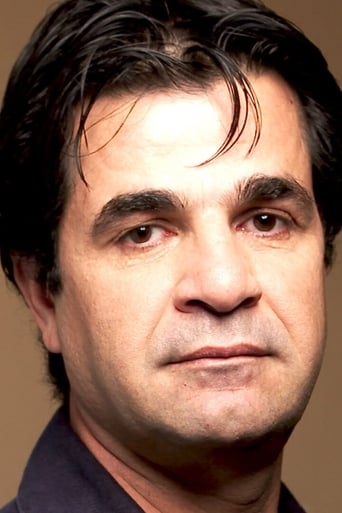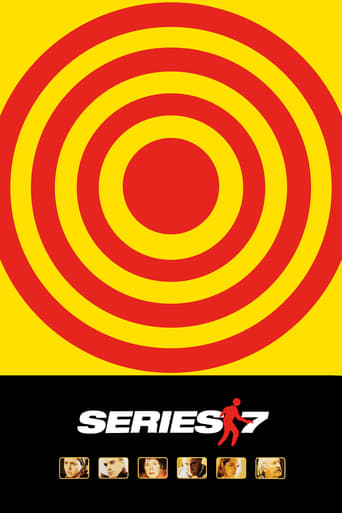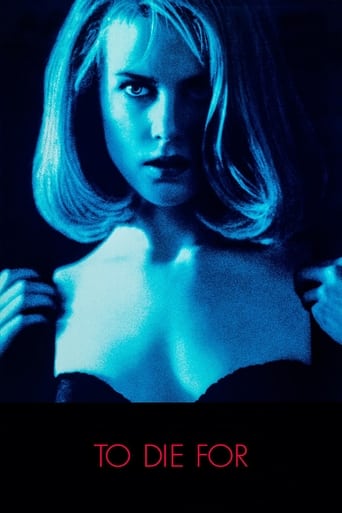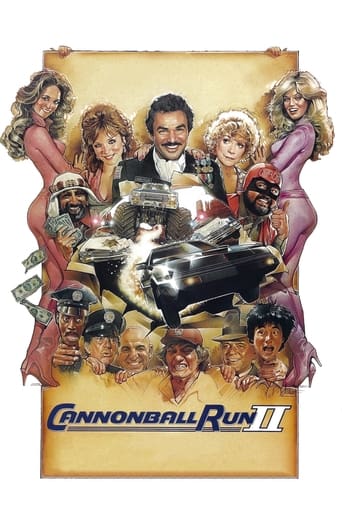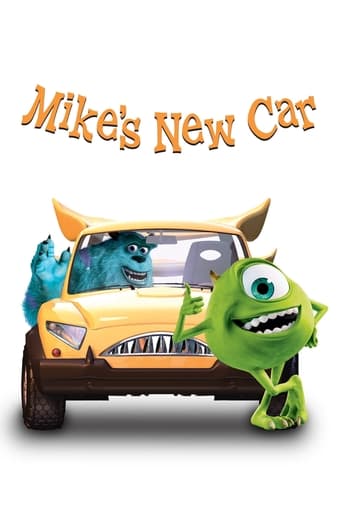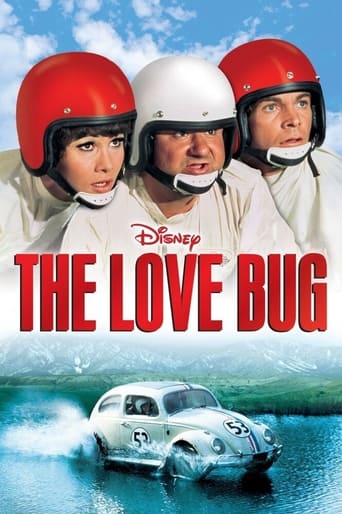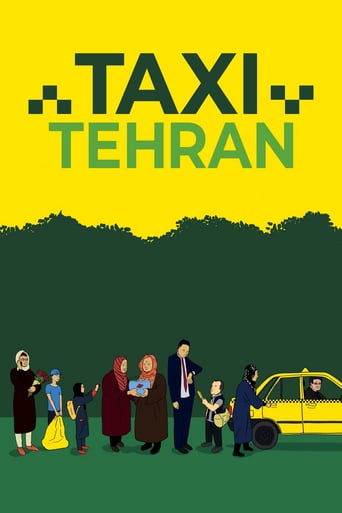

Taxi (2015)
A yellow cab is driving through the vibrant and colourful streets of Tehran. Very diverse passengers enter the taxi, each candidly expressing their views while being interviewed by the driver who is no one else but the director Jafar Panahi himself. His camera placed on the dashboard of his mobile film studio captures the spirit of Iranian society through this comedic and dramatic drive…
Watch Trailer
Cast
Similar titles

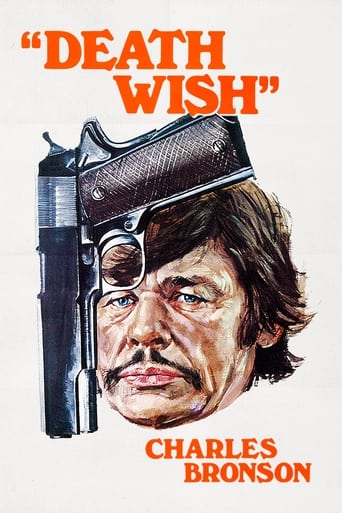
Reviews
Terrible acting, screenplay and direction.
Absolutely Brilliant!
The plot isn't so bad, but the pace of storytelling is too slow which makes people bored. Certain moments are so obvious and unnecessary for the main plot. I would've fast-forwarded those moments if it was an online streaming. The ending looks like implying a sequel, not sure if this movie will get one
It is neither dumb nor smart enough to be fun, and spends way too much time with its boring human characters.
This film would probably have made more sense if the director had been playing a director (sic) playing a cabby (sic) who is clandestinely playing a director (sic) who is not-so-covertly filming it all while miraculously avoiding hitting other vehicles and/or pedestrians. (If you're going to get "meta", get well and truly "meta".)I'd expected a genuine documentary -- though I did wonder how people's identities would be protected if they said anything incriminating. Of course, the statement that the director "is joined by a host of spirited characters" -- with the emphasis on "characters", should really have given the game away.So, all in all, a pretty pointless film that adds nothing to my understanding of the repressive Iranian regime and also fails to entertain. I regret having agreed to play a punter watching this film at home on BBC iPlayer; back to "Extras" for me.
Very interesting and intriguing. Let me explain why so.The difficult Kafkaesque conditions in Iran are very real. I have visited Iran and therefore I have seen it all firsthand. Everything in the movie is real. My heart goes out to the people of Iran where the best works of Iranian cinema are banned. My favourite Iranian film "Bitter Dreams," a debut film by Mohsen Amiryoussefi, was banned within months of it being shown in the Cannes film festival and most cineastes are not even aware of its existence.Panahi is different. He makes good films. He claims he is hounded by the authorities but yet makes films, one after the other, openly in the streets of Teheran. It cannot be that he has done it without people noticing his filming.Now "Taxi" is a laudable work--including the discussion of males wearing ties in public (I have not spotted a single Iranian male wearing a necktie in Teheran, but two people in "Taxi' wear ties, Panahi's friend and the bridegroom), a top human rights lawyer Nasrin Satoudeh (the flower woman) talking of prisons as "Paradise" after she herself endured time in the notorious Evin prison, mention of public hangings for petty offences by financially stressed folks, pirated film CDs sold in the streets, mention of Panahi being interrogated in prison blindfolded and his search for that man by trying to identify him by his voice--all laudable, realistic cinema.Or is it? Panahi is afraid two women with a fishbowl will wet his backseat. When the fishbowl breaks, he is not concerned about the water or the broken glass. The camera angles of the sequence with him helping the ladies save the fish could not have been taken from the dashboard camera. Evidently there were more cameras used than we are expected to believe.I have actually shook hands with the director in my city when he was chairing a film jury. He appeared sullen and unfriendly. In the movie "Taxi" you see a charming, smiling and friendly Panahi. Which is the real Panahi? In my view, the film deserved the Best Actor award at Berlin rather than Best Film.As in Panahi's "The circle", the subject of his cinema is totally laudable in "Taxi." Is there an implicit collusion between Panahi and the Iranian authorities? How much of "Taxi" is spontaneous? Probably very little.
This year's installment in delightfully subversive political guerrilla filming is brought to us by Jafar Panahi and his film, "Taxi". Mr. Panahi is an Iranian filmmaker who ran afoul of his government's strict rules concerning suitable filming subjects. As a result, he spent time in prison and under house arrest. Not to be daunted, he continued making films that skirted the government's definition. "Taxi" is his third such film and like the other two, had to be smuggled out of the country to be seen. Panahi assumes the guise of a taxi driver (apparently a nod to fellow Iranian director Abbas Kiarostami's film, "Ten") and drives around a city, much like any other city, picking up various passengers throughout the day. There are moments of hilarity as Pahani deals with one situation after another, but underneath it all is a telling story of what life is like in Iran today, with particular attention to issues of censorship, state sanctioned brutality, women's rights, and of course, how this affects the arts and culture. It makes light of life in Iran and pokes fun at the powers that be, all the while recognizing that their actions have serious ramifications.It is for the most part an engaging film, but given that it all takes place in a taxi and as such, is almost completely driven by dialog, it can drag a little. Still, for what it is, a piece of political theater, it is really excellent. If you get a chance to see it, I'd recommend it if for no other reason than to get a small feel for a country we, in the Western world, get to see so little of.
Imagine, if you will, a world in which you may walk freely on the streets, but are hardly free at all. That's the world in which Iranian director Jafar Panahi lives, breathes and tries to work - one we're introduced to in gentle, tartly comic fashion in his latest film. Taxi, which won the Golden Bear at the 2015 Berlin International Film Festival, gives viewers a seductive, sobering glimpse into modern- day Iran, a country where criminals are executed for petty theft and women jailed for trying to attend a men's volleyball match.The premise of Taxi is simple - Panahi himself, with cameras cleverly affixed throughout his vehicle, drives a taxi through the teeming streets of Iran. Throughout the day, Panahi the cabbie picks up strangers, friends and relatives, played by themselves or non- professional actors. Along the way, he makes idle conversation with them, or they chat amongst themselves - ordinary chatter that carries quite extraordinary import.It's fascinating, thought-provoking stuff, delving deeply into ideas and questions about Iran and its politics while firmly couched in the language of the everyday. Two passengers launch into an impassioned discussion on the merits (or lack thereof) of capital punishment and syariah law. The broken body of a man is bundled into the backseat and, with what he thinks is his dying breath, he tries to circumvent laws that will prevent his sobbing wife from inheriting their home. Art and ideas are sold on the streets, the stuff of covert piracy, as the precocious Hana Saeidi, Panahi's young niece, relates to him the lessons she has learnt on how exactly to make films that will be 'screenable' in Iran.To be honest, the final film is an amiable if somewhat rickety affair. Parts of it work better as metaphors, faltering somewhat in the execution. For instance, Hana is, literally and metaphorically, the future - both of Iran and, with her own little hand-held camera, filmmaking. But the moment when she tries to exert control over a scene she's shooting from the window of the taxi, haranguing a little boy to behave differently so that her footage will pass muster in school, feels a little too on-the-nose. In a couple of instances, it's easy to identify the issues Panahi wants to raise: in a bowl of fish or an iPad video, he finds insights about the power of superstition and the tragedy of poverty. But the scenes themselves don't always work as well, ambling when they should sprint.Nevertheless, it's impossible to remain unmoved by the quiet power and heartbreaking passion of Taxi. This is a gem of a film: subtle, leisurely and surprisingly funny; thoughtful and deep but rarely overbearingly so. It's all the more impressive, of course, as a testament to Panahi's ongoing refusal to bend and break beneath the 20-year filmmaking ban that was slapped on him in December 2010. Since then, he's smuggled a film out of Iran on a flash drive baked into a cake, and assembled Taxi out of cam footage shot in broad daylight in Tehran. That's why, in ways both big and small, Taxi serves as a bold reminder of the bravery and strength of the human spirit.
